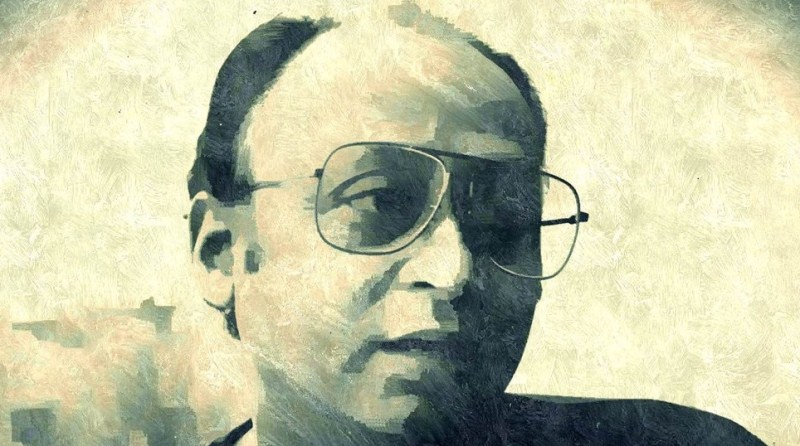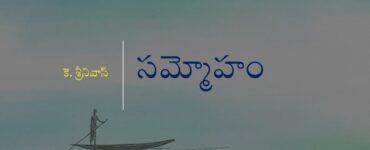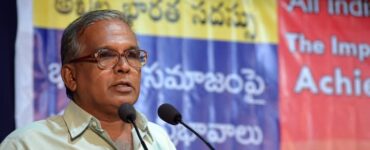1
A Full -Moon Night
Often a summer full-moon night has no story
to tell of no match to strike in a gas-filled room
or no villagers lined-up to be shot by militants,
resembling a ridge of palms against an unreal sky.
Not even of the emptiness of a butterfly in metamorphosis
or of a stench on which to found some meaningless poem.
But the hero of this story has done no great crime;
perhaps small indiscretions, or at times a lacquered lie
that presses down the sad, prophetic answers
to questions as when a rapist crushes a cowering child.
So this story shall try to pick up a few brave words,
when even without a voice we could lose them all:
a story delivered from an empty stage to no audience
because history is anchored by a dream of iron that rusts away.
The real hero could be just another woman who sits
with her knees drawn to her chest, her baby propped
against her shins, hunger withering her impotent flesh,
with the old behemoth of faith set in Sita’s lineage.
But there is no other story here; only the blatant pain
of wanting nothing more, no rights or longings or loves,
as she unfurls her guts, washes her thirsty shadows,
and drops the unfinished dream of wearying grandmothers
onto the hour; while the full moon falls asleep
over the weary river even before they can mate and break free
from the secret morning held unhealed in their throats.
2
DRIFTING
Grief and more grief, taking us nowhere
My mother is wearing a discolored dress
and she’s been dead for years now.
The play-acting buffoonery of children
chasing a madman in the street cages me still.
Spring flowers break down silently on the mountains.
My breath stretches and roams the stiffened fields.
Buried murmurs break loose from the end of a life.
I pick up the tumbler, almost empty, and swallow.
Hiroshima is a myth, I think. And the Kalinganagar dead.
A stab wound pierces the fear of the dark once again.
In its shadow-blood the words of dialectic economics
are washed away; there is no urge to the miracle
for the country’s landless to shine
the spread-out finger-nails of stray paddy fields.
It’s indifference when
our unseen poor pass the night
chanting prayers in the starvation-light
where laughter rests in parliamentarians’ mouths.
A second is a breath that does not take long to end.
Unsure, I look around like a dead calendar
trying to pick with sorrow, memory only finds shadows
through flesh, mourns only the one who left a name.
3
Here and Elsewhere
Rain hours.
Here, a young mother has strangled
her only child in the long night.
Fish grow torpid in the ponds.
Elsewhere, a woman’s squeamishness
seems genuine when she discovers
a caterpillar deep inside a cabbage.
Elsewhere too, a girl is set on fire
for the dowry she did not bring.
Every night I prepare for my walk
in the dusty, crowded streets,
where the marbled moon breaks through
the clouds in an ultimate act of defiance.
Every night frogs appear from nowhere
to mate and croak in the rain pools.
A scream drives past through rainy fog,
a moment without past or future.
My father told me once
about the old tribes who may have
cut off bits of flesh from young girls alive
and strewn them across the raw furrows
of dark humus in the Orissa mountains.
Their own reasons for this appeased them;
the men of the tribe had each other
to fall back upon. As shadows hovered
over the fields, scrabbling softly at the light.
Whatever word I choose to give it all
spews out a futile lament. Such death
I see everywhere has to be sold discreetly
in small doses,
and must come to build faith in its own way.
Today my tame grief is a worn-out,
long rope tied at one end.
And God, a conspiracy for pregnant paddies,
keeps dancing at the other.
4
A Hot May Afternoon
Not a breath of air anywhere
Just my sinful shadow
Keeps craving for a kindred being.
Windows are shut tight
In houses everywhere.
And outside, farewell after farewell.
How can I break
This grating silence of the river’s
Burning sands inside of me?
When I muster
Enough courage
And reach for my lover’s breasts,
With a half-smile
She hands me the First Book
Of an untouched life.
(Translated from Odia by Gopa Ranjan Mishra)









Add comment